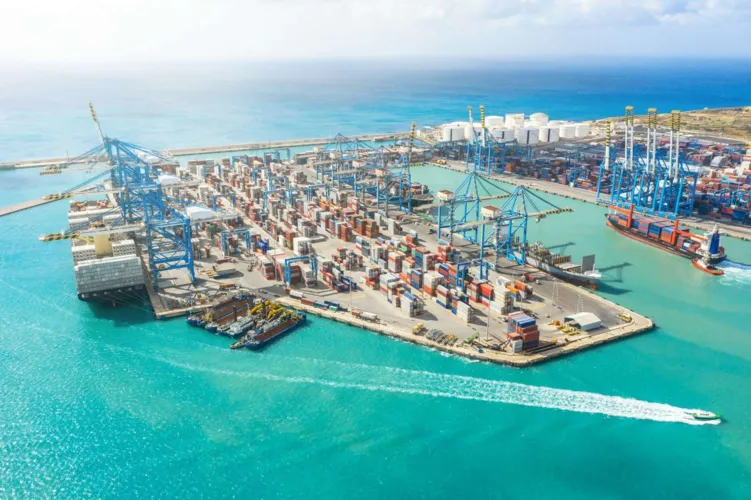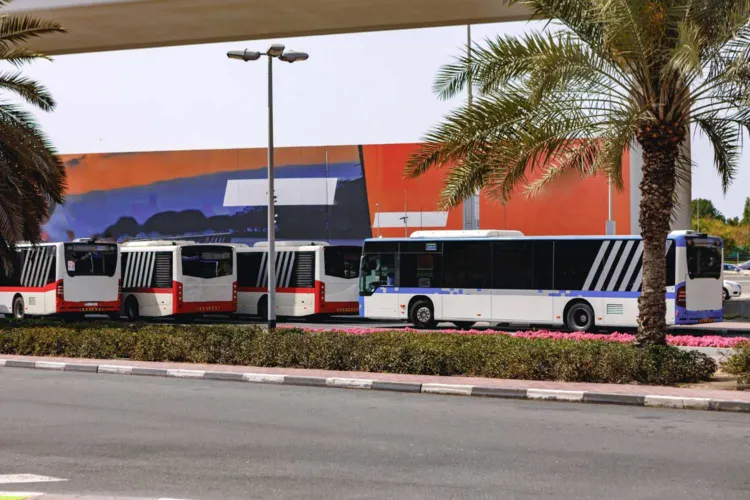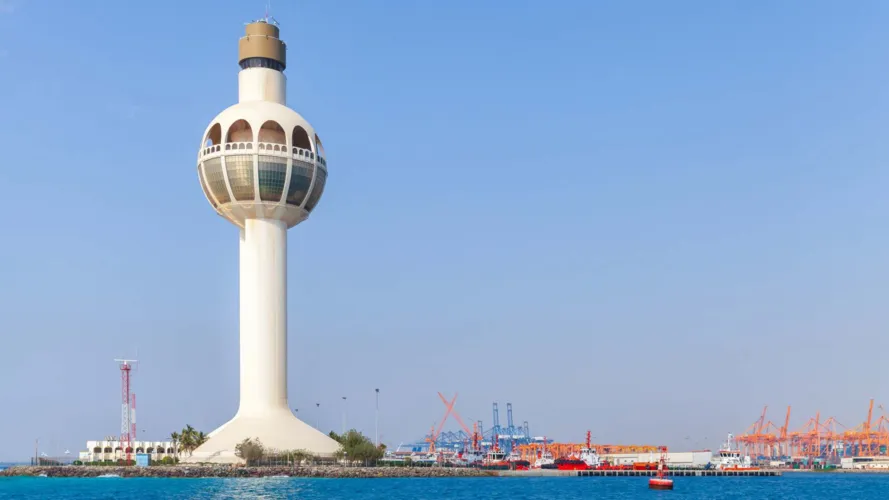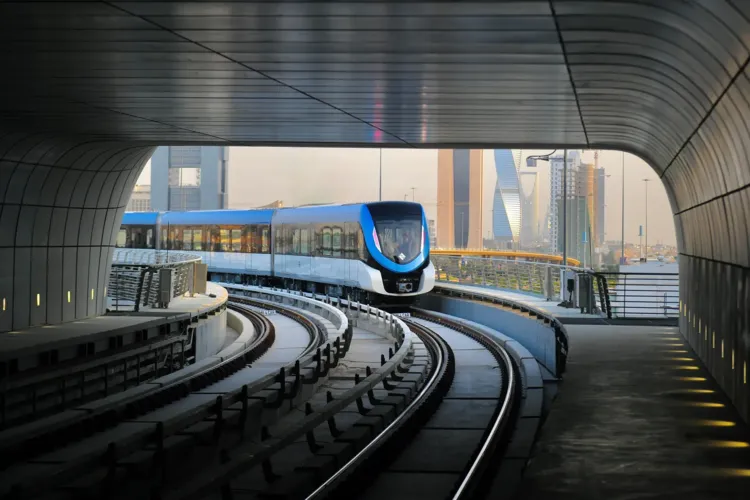Saudi Logistics Industry: Supply Chain Market to Hit $970M by 2033
Saudi Arabia’s supply chain market is projected to grow from $560M in 2024 to $970M by 2033, reflecting a 6.7% CAGR. The Saudi Logistics Industry is on the cusp of a major transformation, fueled by Vision 2030’s ambitious economic overhaul, which prioritizes infrastructure development, economic diversification, and technology integration.
At the heart of this transformation is Saudi Arabia’s unmatched geographic advantage. Positioned between Asia, Europe, and Africa, the Kingdom is rapidly cementing its role as a global trade hub. But the transformation isn’t just about geography; it’s also about innovation. The adoption of artificial intelligence, blockchain, and IoT is helping businesses streamline operations, improve efficiency, and enhance supply chain visibility in ways that weren’t possible before.
Infrastructure development is just as critical as digital transformation in reshaping Saudi Arabia’s logistics sector. The National Industrial Development and Logistics Program has earmarked over $133 billion to modernize airports, ports, and rail networks. Major projects, like the expansion of King Abdullah Port and the construction of the Saudi Landbridge, are expected to cut transit times and open new trade routes—giving Saudi Arabia a competitive edge in global supply chains.
Beyond infrastructure, Saudi Arabia is fortifying its trade relationships to build resilience. The Kingdom is widening its network beyond traditional partners like the U.S., embracing stronger ties with BRICS nations and fostering foreign investment in key industries. Initiatives like the Global Supply Chain Resilience Initiative are bringing new capital into aerospace, pharmaceuticals, and renewables, strengthening the country’s foothold in export-driven markets.
Saudi Arabia’s Free Trade Zones Accelerate Logistics Expansion
The rise of Free Trade Zones (FTZs) is a game-changer for the Saudi logistics industry, streamlining import/export processes, reducing customs barriers, and attracting foreign investment. FTZs provide tax exemptions, simplified regulations, and cost-effective logistics solutions, making Saudi Arabia an increasingly attractive destination for global trade.
These zones, strategically positioned near key ports and airports, optimize connectivity and reduce transit costs. As Saudi Arabia diversifies its economy beyond oil, FTZs have emerged as a critical component of supply chain modernization, enhancing efficiency while expanding trade partnerships with regional and global markets.
E-Commerce Surge Fuels Demand for Logistics Innovation
E-commerce growth is also rewriting the rules of the Saudi logistics industry, with cross-border transactions accounting for 60% of total online sales. Saudi consumers prioritize competitive pricing, product variety, and international brands, driving demand for efficient fulfillment and last-mile delivery.
To meet rising expectations, logistics companies are implementing AI-driven route optimization, IoT-based tracking, and micro-fulfillment centers, leading to 25% faster deliveries and 15% fewer lost parcels. The government’s push for cashless transactions and digital integration further supports the growth of e-commerce logistics, reinforcing Saudi Arabia’s status as a logistics innovation hub.
Infrastructure Investments Propel Saudi Logistics Industry Forward
Saudi Arabia’s $133B investment in ports, roads, airports, and railways is fueling supply chain growth. Key projects such as the Saudi Landbridge, a 1,300-km rail network connecting the Red Sea to the Arabian Gulf, will cut transit times and boost international trade efficiency.
Major ports like King Abdullah Port and Jeddah Islamic Port are undergoing expansions to increase container capacity, strengthening Saudi Arabia’s role as a global trade gateway. These developments enhance logistics resilience, minimize transport costs, and improve supply chain efficiency.
Also Read: Saudi Landbridge & E-Commerce Driving $970M Logistics Boom
Key Players and Market Trends Driving Saudi Logistics Industry
Saudi Arabia’s logistics sector is dominated by key players such as DHL, DB SCHENKER, Wared Logistics, and SMSA Express. Industry trends shaping the market include:
- Digital Transformation: AI, IoT, and blockchain enable real-time visibility and predictive analytics.
- E-commerce Logistics Expansion: Last-mile delivery solutions improve speed and efficiency.
- Sustainability Initiatives: Green logistics strategies are reducing carbon footprints.
As Saudi Arabia accelerates its supply chain modernization, the pieces are falling into place for a more agile, tech-enabled logistics ecosystem. With investments pouring in and digital transformation reshaping operations, the Kingdom is rapidly emerging as a critical global trade hub—one built to withstand market fluctuations and drive long-term economic growth.
Also Read: All You Need to Know About Saudi Logistics Initiatives: The Road to Global Trade Leadership







